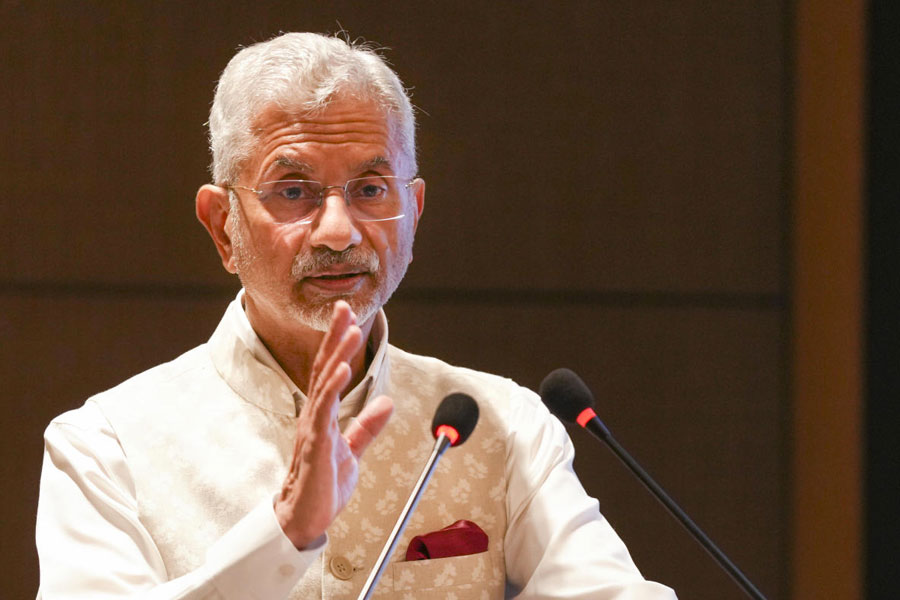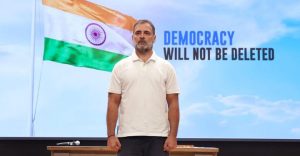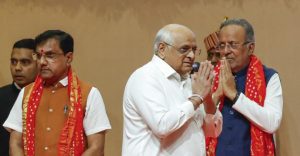External Affairs Minister S. Jaishankar has firmly stated that India cannot accept a Shanghai Cooperation Organisation (SCO) joint statement that excludes any reference to terrorism. Addressing an event in New Delhi, Jaishankar stressed that fighting terrorism is one of the SCO’s key objectives. “If the document doesn’t mention terrorism, then it loses its purpose for us,” he declared.
Subtle Swipe at Pakistan
While Jaishankar did not directly name Pakistan, he strongly hinted that Pakistan was the nation blocking the inclusion of terrorism in the statement. “One member country, and you can guess who, opposed the mention of terrorism,” he remarked. The SCO requires unanimous approval from all its members, allowing any country to block consensus.
Earlier, Defence Minister Rajnath Singh also refused to endorse the joint statement for the same reason. India had insisted that the statement should acknowledge the recent Pahalgam terror attack, which killed 26 civilians. However, the final draft made no mention of this incident and instead referenced issues unrelated to India’s concerns, like the Balochistan situation and a train hijacking elsewhere.
Why India Insists on Terrorism References
Jaishankar firmly supported the Defence Minister’s decision, arguing that excluding terrorism undermines the very essence of SCO’s mission. “SCO functions on consensus. Rajnath Ji rightly said that if terrorism isn’t mentioned, we cannot be part of the final statement,” he explained.
This incident marked the first time the SCO defence ministers’ meeting concluded without a formal joint statement, highlighting the depth of disagreement. India’s objection wasn’t merely symbolic. With the Pahalgam attack fresh in memory and ongoing security concerns along its borders, India wanted a clear and firm stand against terrorism in the SCO declaration.
National Consensus on the Issue
Jaishankar pointed out that India’s stand was not limited to the ruling party but enjoyed bipartisan support. He noted that even opposition leaders like Shashi Tharoor, Supriya Sule, and Kanimozhi were part of delegations that defended India’s position abroad. “It is a matter of national pride that the fight against terrorism transcends party lines,” he stated.
The Minister also clarified that India wasn’t demanding anything extraordinary. The request to include terrorism was a simple reflection of the SCO’s founding principles. Ignoring this issue sends the wrong message, especially when terrorism remains a major threat in the region.
Diplomatic Tensions Grow
The deadlock reflects broader geopolitical tensions within the SCO. Pakistan’s refusal to acknowledge terrorism-related language, coupled with the hesitation of some member countries like China and Russia to confront Pakistan directly, complicated the negotiations. This situation revealed how internal divisions within the SCO can stall meaningful agreements.
Jaishankar reiterated that India’s zero-tolerance approach towards terrorism is non-negotiable. He made it clear that if terrorism persists, India will continue taking all necessary steps to protect its citizens.
Rising Security Concerns
Tensions between India and Pakistan remain high. Following the Pahalgam attack, India launched “Operation Sindoor,” a significant military campaign targeting terror camps across the border — the largest since the 1971 war. Additionally, India temporarily suspended cooperation under the Indus Waters Treaty, further escalating diplomatic strains. Pakistan, on its part, denied any involvement in the attacks and condemned India’s military actions.
The Road Ahead for SCO
With the SCO Heads of State Summit scheduled soon, this disagreement sets the stage for potential confrontations. India is expected to continue pushing for a clear and strong statement against terrorism. Whether other members, particularly China and Russia, will support India’s stance or lean toward Pakistan remains uncertain.
If the SCO once again fails to adopt a strong anti-terrorism position, India may choose to withhold its support from future declarations as well. For New Delhi, there is no room for ambiguity when it comes to addressing terrorism at international forums.





More Stories
U.S. Congress Warns Trump: Tariffs on India Risk Strategic Partnership
Under‑Construction Tower Collapses in Chennai, Nine Missing After Disaster
From Ice Stupas to Isolation: Sonam Wangchuk Detained Amid Ladakh Turmoil